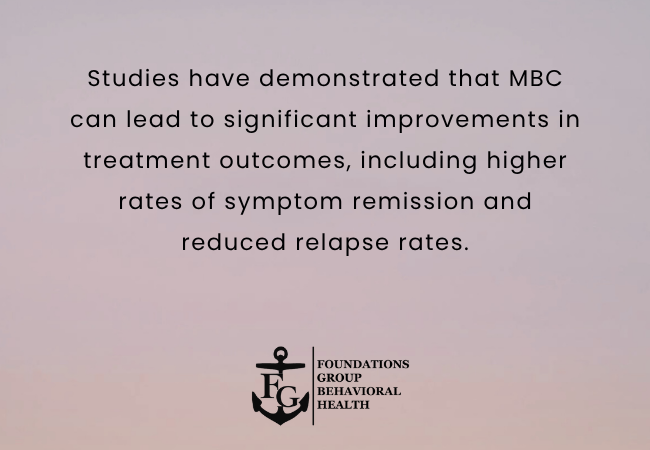Tracking progress in outpatient mental health treatment can be one of the most essential—yet challenging—parts of care. Therapists, clients, and care teams alike must work together to assess whether treatment is helping, if goals are being met, and whether adjustments need to be made. With an increasing shift toward personalized care, data-driven methods are becoming critical tools in helping individuals achieve lasting mental wellness.
Today, measuring progress in therapy isn’t just about subjective impressions or milestone-based checklists. It’s about capturing meaningful data in real-time, analyzing client feedback, and using insights to guide a responsive, adaptable treatment plan. This article explores how mental health professionals are using evidence-based tools and frameworks in outpatient care, and why this approach can significantly improve outcomes for individuals and families.
The Importance of Tracking Progress in Outpatient Care
Outpatient care settings require a balance between clinical oversight and client autonomy. Unlike inpatient environments, outpatient programs provide individuals with more flexibility to live at home, maintain jobs, or continue school while attending therapy sessions. However, this flexibility also means there must be clear benchmarks and collaborative evaluations to understand whether treatment is helping or needs refinement.
Consistent measurement allows clinicians to evaluate how a person’s symptoms are changing, how they’re responding to different interventions, and how external factors may be affecting their mental health. When clinicians and clients both engage in tracking and reviewing this information, it strengthens the therapeutic alliance and ensures that treatment is truly client-centered.
Incorporating structured measurement tools in Outpatient Mental Health Therapy Massachusetts ensures the therapeutic process remains both dynamic and accountable, especially for individuals navigating complex symptoms or co-occurring diagnoses.
Tools and Methods for Measuring Mental Health Progress
Several evidence-based tools and assessments are used in outpatient care to track changes in a client’s condition. These tools may include:
- Standardized Screening Tools: Instruments like the PHQ-9 (for depression), GAD-7 (for anxiety), or PCL-5 (for PTSD) help quantify symptom severity at different points in care.
- Session Rating Scales: Quick forms completed after sessions can give insight into how clients feel about the therapy process, including whether they feel heard, supported, and understood.
- Goal Attainment Scaling: This structured method involves setting specific, measurable goals with the client and then evaluating progress toward those goals at regular intervals.
- Digital Health Platforms: More programs are now using apps or online platforms that allow clients to log mood, symptoms, and behaviors between sessions. These platforms can provide real-time insight and help therapists adjust treatment more effectively.
When therapists use these tools regularly, they gain a clearer picture of a client’s mental health trajectory, rather than relying solely on weekly check-ins or verbal updates.
Individualizing Treatment Plans with Data
Data is only as useful as the action it inspires. In personalized mental health care, therapists use data not to label or restrict clients, but to empower them. As trends emerge in assessments or symptom tracking, clinicians can tailor approaches accordingly.
For instance, if a client begins showing increased irritability or poor sleep over several weeks, these patterns might indicate underlying mood instability or an external stressor. Rather than waiting for a crisis, clinicians can proactively shift focus—perhaps adjusting therapeutic strategies, exploring medication options, or bringing in family support.
This is especially important in specialized programs, such as a Half Day Treatment Program Massachusetts, where individuals might engage in several therapy modalities over a condensed schedule. In such programs, clinicians are more likely to detect changes early and intervene meaningfully.
Treating Complex Conditions with Nuanced Metrics
When treating disorders such as depression, anxiety, or trauma-related conditions, therapists must move beyond symptom reduction alone. The goal isn’t just to feel “less sad” or “less anxious”—it’s to build a life of stability, connection, and purpose.
This is why measuring progress might also include:
- Improvements in sleep, energy, or appetite.
- Increases in social engagement or meaningful relationships.
- Enhanced coping skills and emotion regulation.
- Reduced self-criticism or avoidance behaviors.
For example, someone in a Depressive Disorder Treatment Program Massachusetts might initially score high on a depression inventory. Over time, small but steady improvements—like getting out of bed daily, re-engaging with hobbies, or reducing self-harming thoughts—can reflect powerful internal change, even if the client still experiences sadness or fatigue occasionally.
Similarly, clients in a Trauma Disorder Treatment Program Massachusetts may measure progress not by the absence of flashbacks or panic but by increased trust in others, improved emotional containment, and greater resilience in daily life. These are less visible but deeply significant markers of recovery.

The Role of the Client in Tracking Progress
Clients are not passive recipients of therapy—they are collaborators. Encouraging clients to reflect on their own progress, track behaviors or emotions between sessions, and share that data with their therapist can be incredibly empowering.
Self-monitoring tools, such as mood journals or mental health apps, can help clients become more aware of patterns and triggers. When this self-awareness is combined with the support of a trained clinician, clients are more likely to feel agency in their healing process.
This client-driven model is often a key feature of Mental Health Therapy Massachusetts, where clinicians focus not only on treatment but also on education, self-advocacy, and autonomy.
Why Choose Foundations Group Behavioral Health
At Foundations Group Behavioral Health, we don’t believe in one-size-fits-all treatment. We believe that progress in mental health care should be personal, measurable, and meaningful. Every client who walks through our doors deserves a plan that reflects not only their clinical needs but also their life goals, values, and lived experiences.
What sets us apart is our commitment to combining compassionate, trauma-informed care with evidence-based, data-driven practices. Our clinicians are highly trained in administering and interpreting progress tracking tools, but more importantly, they know how to translate that information into personalized care that resonates with each client’s unique healing journey.
Our therapeutic environment fosters trust and collaboration. Whether you’re attending weekly sessions or engaged in a structured outpatient program, you can expect consistent communication, transparent goal setting, and ongoing reviews of your progress. We believe clients should not just feel better—but know they’re getting better.
As a Behavioral Health Treatment Center Massachusetts, we offer a full spectrum of mental health services designed to grow with you. From early intervention to long-term management of complex conditions, our programs are built to adapt to your changing needs while keeping your progress on track.
Conclusion
Measuring progress in outpatient mental health care isn’t just a clinical necessity—it’s a fundamental part of honoring the healing process. In a field as deeply human as mental health, having a framework that respects both data and the individual can be the key to effective, lasting change.
At Foundations Group Behavioral Health, our goal is to guide clients through therapy with clarity, confidence, and care. We ensure that every plan is grounded in real evidence and real connection, so that each person feels seen, supported, and empowered every step of the way. Whether your progress is gradual or swift, we’ll help you understand it, celebrate it, and build on it.
Mental wellness is not a destination—it’s an evolving journey. And when that journey is supported by thoughtful strategy and compassionate guidance, it becomes not just manageable, but transformative.
If you’re ready to start measuring real progress in your mental health journey, reach out to our team at (833) 986-2594. We’re here to support you with tools that work—and a team that cares.
Frequently Asked Questions (FAQs)
What is data-driven treatment planning in outpatient mental health care?
Data-driven treatment planning uses assessments, measurable goals, and outcome tracking to guide and adjust therapy. It ensures care is based on a client’s progress rather than guesswork, supporting better long-term outcomes.
How often is progress measured in outpatient mental health therapy?
Progress is typically evaluated at regular intervals—often biweekly or monthly—using standardized tools and therapist observations. The exact schedule depends on the individual’s treatment plan and goals.
What tools are used to measure progress in therapy?
Clinicians may use symptom rating scales, client self-reports, goal attainment tracking, and structured clinical interviews. These tools help identify what’s working and what may need to be adjusted in the treatment plan.
Can data-driven therapy be personalized to individual needs?
Yes, personalization is a key aspect. While tools provide objective measures, the interpretation and application are always tailored to the individual’s unique circumstances and therapeutic goals.
Is data-driven outpatient therapy effective for trauma-related disorders?
Absolutely. When integrated with trauma-informed care, data-driven approaches provide structure without being rigid. They offer insight into patterns and improvements while honoring the client’s lived experience.








